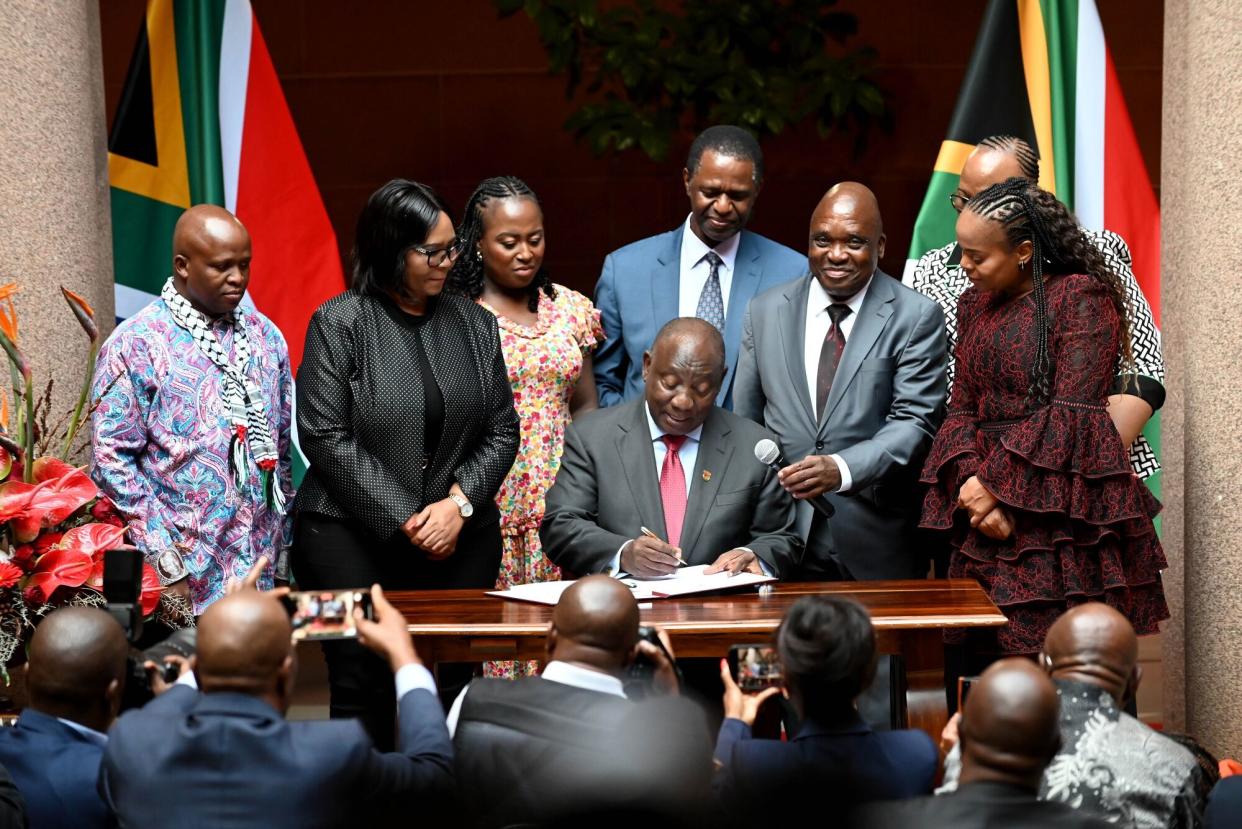South Africa Gears Up for Legal Battle Over Health-Care Revamp

- Oops!Something went wrong.Please try again later.
(Bloomberg) -- A legal battle over South Africa’s newly enacted national health-insurance law is brewing and is likely to end up in the nation’s top court.
Most Read from Bloomberg
US Inflation Data Was Accidentally Released 30 Minutes Early
With a BlackRock CEO, $9 Trillion Vanguard Braces for Turbulence
Putin and Xi Vow to Step Up Fight to Counter US ‘Containment’
China Unveils Broad Rescue Package to Prop Up Housing Market
Jamie Dimon Sees ‘Lot of Inflationary Forces in Front of Us’
President Cyril Ramaphosa approved the controversial National Health Insurance Act on Wednesday after years of wrangling over its contents. The legislation provides a framework for citizens to secure universal access to health care through a centrally managed government fund that buys services from public and private providers.
South Africa’s overburdened public facilities currently serve about 84% of the population, while the remaining 16% who can afford private insurance have access to world-class treatment. But opposition parties, business lobby groups and some labor unions argue that NHI won’t remedy the situation and is unconstitutional, and are gearing up for legal action.
Here are some of the key grounds on which the law is likely to be challenged:
Constitutional Issues
No provision is made for the investment needed to provide accessible and quality health care as mandated by the constitution, according to the Democratic Alliance, the main opposition. The idea that people “will seamlessly access private hospitals under the NHI is a fallacy,’ said Siviwe Gwarube, the party’s chief whip in parliament. “What we need is a comprehensive overhaul of the entire health-care system, utilizing the significant portion of our gross domestic product allocated to health care.”
The legislation will ban the private sector from offering cover for treatment available under NHI, a provision its detractors say will fundamentally affect patients’ rights to health care of their choice, freedom of association and employment options. It will also erode the rights of doctors, nurses and other health-care professionals to determine their working conditions.
The new law will also diminish the role that the nine provinces play in the provision of health care, providing another avenue for it to be challenged on constitutional grounds.
Funding and Tax Considerations
The government hasn’t spelled out how much the revamped system will cost or how it will be funded. Estimates vary widely, with some pegging it as high as 500 billion rand ($27 billion) annually. Opponents of the plan say it is simply unaffordable and can’t be implemented in its current form.
“The tragedy of our country is a narrow tax base with high levels of unemployment,” said Adrian Gore, the founder of health insurance provider Discovery Ltd. “You don’t have sufficient money to buy comprehensive benefits for all South Africans.”
The government and other experts say there’s scope for massive savings to be affected, including cutting back on unnecessary treatment to private sector patients, and the funds can be redeployed to widen coverage. If the number of people using the intensive-care units was halved and half of those savings were used to improve the quality of care in general wards, that would still leave $180 million to be spent elsewhere, said Sharon Fonn, a researcher who helped conduct a 2019 inquiry into the health-care market.
Flawed Parliamentary Process
Thousands of public submissions were made when parliament processed the NHI law, but few of the suggested changes were incorporated, leaving it open to be challenged on procedural grounds.
“Various role players in the health-care system have voiced their concerns, from professional bodies representing medical professionals to medical aids, academics, civil society, and economists,” but they have just been ignored, said Stefanie Fick, an executive director at the civil rights group Organisation Undoing Tax Abuse.
Health Minister Joe Phaahla says that due process was followed.
Read More: Why South African Health-Care Revamp Stirs Opposition: QuickTake
Most Read from Bloomberg Businessweek
How the ‘Harvard of Trading’ Ruined Thousands of Young People’s Lives
Milei Targets Labor Law That’s Set to Hand Banker $10 Million Severance
©2024 Bloomberg L.P.


